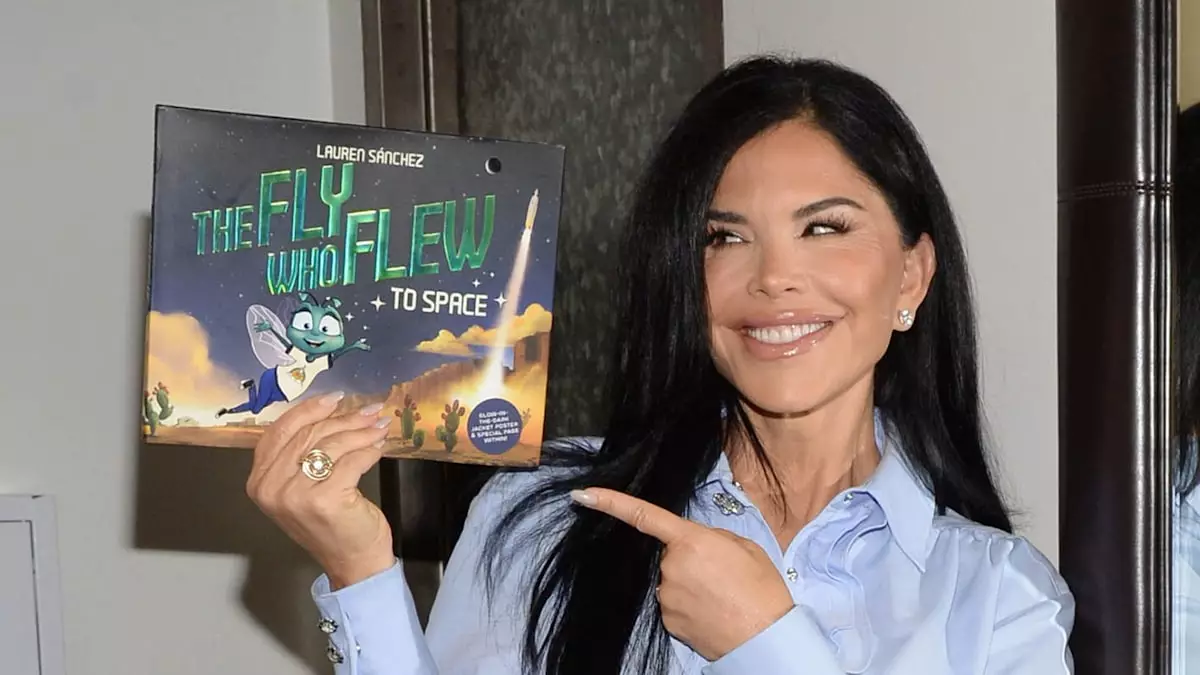In a surprising turn of events, Lauren Sanchez, the fiancée of Amazon founder Jeff Bezos, finds herself embroiled in a contentious legal dispute initiated by her former yoga instructor, Alanna Zabel. The allegations, which have emerged in a lawsuit filed by Zabel, include severe accusations of “betrayal and theft” related to Sanchez’s recently published children’s book, “A Fly Who Flew to Space.” The lawsuit reveals that Zabel had previously engaged with Sanchez to propose a collaborative project involving a children’s book titled “Dharma Kitty Goes to Mars,” creating a complex narrative of creativity turned sour.
Zabel claims that during their working relationship from 2007 to 2010, she imparted both yoga knowledge and personal insights to Sanchez. Fast forward to 2022, Zabel reached out with a proposal to work together on her envisioned book. However, she accuses Sanchez of expropriating this concept, claiming that Sanchez’s publication consists of over 60% matching content with her original idea. Such high percentages of similarity raise critical questions about intellectual property rights and creative ownership in the literary world, intensifying the scrutiny around Sanchez’s artistic integrity.
Compounding the complexity of Zabel’s accusations is her characterization of Sanchez’s behavior as marked by “continual and outrageous acts of jealousy.” While the specific instances of jealousy remain unspecified in the lawsuit, the implications are powerful, hinting at a toxic relationship complicated by ambition and rivalry. Zabel suggests that Sanchez modeled her persona after her own, positioning herself as a “free-spirited” and socially conscious individual, akin to what Zabel describes as her own authentic self. This mirrors broader themes of rivalry that often emerge within creative circles, where one individual’s success can become a source of envy or tension for another.
Furthermore, Zabel asserts that Sanchez’s alleged appropriation of her work has inflicted significant emotional distress upon her. This raises pivotal questions about the psychological impacts on individuals when they feel their intellectual contributions are undermined or replicated without acknowledgment. Intellectual theft is not solely a legal matter but also a deeply personal one, often leading to feelings of betrayal and loss of trust.
While the lawsuit emerges, Sanchez has been actively promoting her book, which centers on a dyslexic fly exploring the world. This narrative resonates with many, particularly those who have faced challenges in school due to learning disabilities. During recent events promoting her book, Sanchez has openly shared her own struggles with dyslexia, providing a heartfelt connection with her audience. Notably, she shared an emotionally charged anecdote about her life-changing encounter with a teacher that helped her understand her learning difference, reflecting a shift from personal challenges to advocacy through literature.
However, as Sanchez navigates her promotional tour, the lawsuit casts a shadow over her achievements. The juxtaposition of personal triumph through storytelling against the backdrop of serious allegations of theft creates a complicated public narrative. While the emotional messages within her book may uplift many, the controversy surrounding it undermines her credibility and intentions by blurring the lines between inspiration and imitation.
The unfolding dispute between Sanchez and Zabel highlights the significant complexities facing authors and creatives in today’s environment, where collaboration and inspiration intermingle with the risk of intellectual property infringement. As creative industries evolve, it becomes increasingly necessary to establish clear agreements regarding ownership and originality. This situation serves as a reminder of the need for transparent professional relationships grounded in respect and acknowledgment of each other’s contributions.
As the case continues to develop, it raises fundamental questions about authorship, creativity, and the potential for harm when boundaries are crossed. The outcome of this lawsuit may not only affect the parties involved but could also have broader implications for how creative partnerships are structured and recognized moving forward. As Lauren Sanchez navigates her personal and professional challenges, her story becomes a cautionary tale about the intricate dance of inspiration and originality in the often unpredictable world of creativity.

